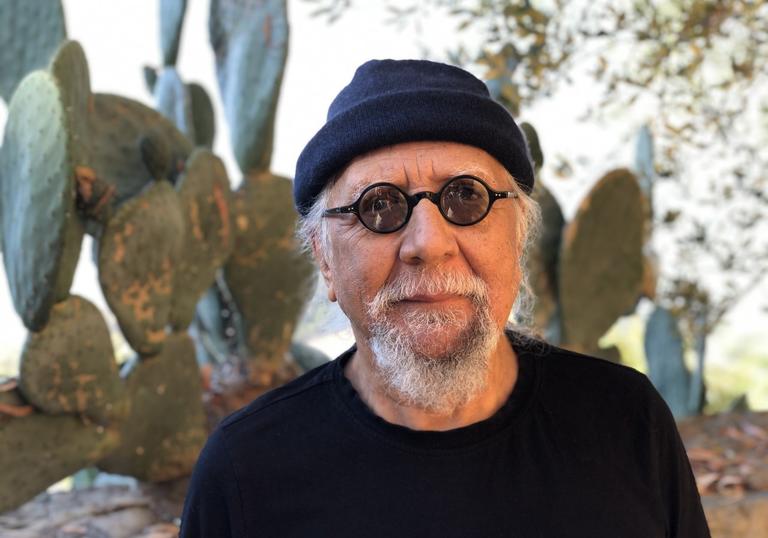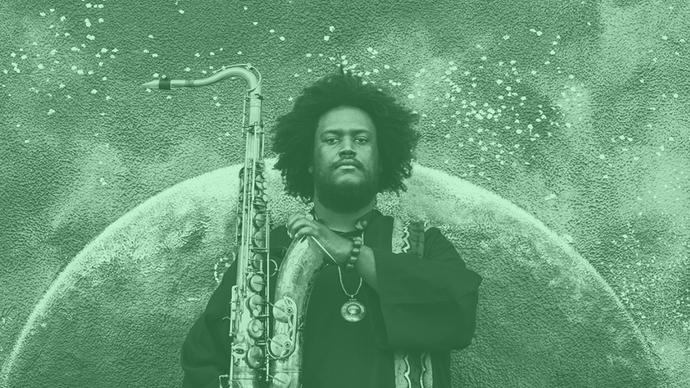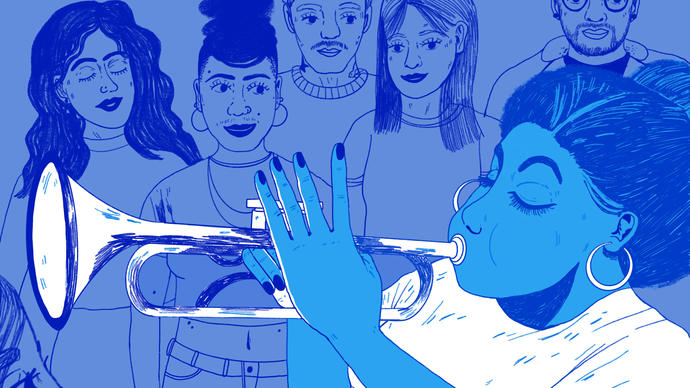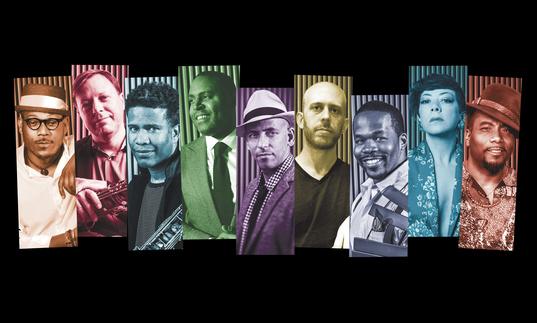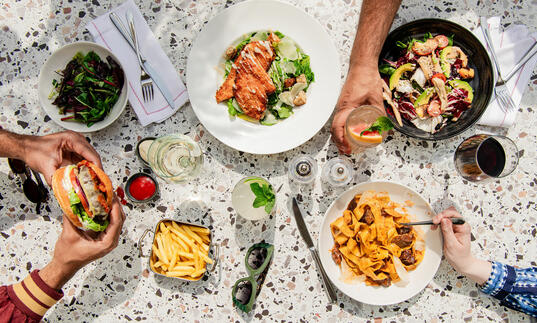Some improvising musicians turn less into more, and some do the eloquent opposite. For John Coltrane, a minimal four-note phrase echoing the rhythm of the words 'A Love Supreme' famously spurred his torrential saxophone sermons of the 60s, performances that occasioned jazz music's rare chart hits and held audiences spellbound whether they were fans of the genre or not. But for Charles Lloyd, one of Coltrane's most creative heirs, the full-on intensity and passion that drove his early years has turned since the late 80s into something equally powerful but more muted: in its delicately distilled lyricism, and glimpses of the gospel music, classic jazz, country songs and blues that the Memphis-born master improviser and composer heard all around him in childhood.
A unique tenor saxophonist, flautist, and occasional practitioner of Hungary's cor anglais-like tárogató, Charles Lloyd has been paring his music down as the years have rolled by – and the more patiently he has pursued that course, the more avidly worldwide respect for his art has bloomed. The telltale characteristics of Lloyd's early career sound – impulsively rough-sketched melodic lines referencing Coltrane and Ornette Coleman's blues inflections– have simmered down, which moved Manfred Eicher (head of Munich's influential ECM label and Lloyd's recording guru for nearly 30 years) to observe that the saxophonist's music was steadily accumulating the bare-bones truths of Alberto Giacometti's monochrome pictures and spidery sculptures: to reach a 'refined essence of what music should be. All the meat is gone, only the bones remain.'
It was an outcome that couldn’t have been predicted in 1966, when a 28-year old Lloyd formed a contemporary-jazz quartet with young piano newcomer Keith Jarrett and drummer Jack DeJohnette (soon to be Miles Davis’ sidemen), alongside bassist Cecil McBee, and packed international pop stadiums as well as jazz venues with a mixture of funky hooks, muscular sax-playing, and Latin-jazz swingers that enthused a young rock audience without an electric instrument within earshot. The Lloyd band's music would be played on FM radio alongside rock, folk and global music stars, from Jimi Hendrix and Bob Dylan, to Ravi Shankar and the Grateful Dead. But by the end of the 60s, Lloyd had withdrawn from that world, and retired to California to meditate and occasionally play and tour with his West Coast neighbours, the Beach Boys. Some jazz devotees assumed he would never return to the music, but a French piano prodigy called Michel Petrucianni sought him out, jammed with him, and persuaded him to get back on the road. It was a key turning point in the saxophonist's life.
Charles Lloyd returned to regularly touring and recording in his 50s, beginning a series of sessions for ECM that produced sixteen widely-acclaimed albums with likeminded collaborators including pianists Brad Mehldau, Geri Allen and Jason Moran; and the great Ornette Coleman drummer Billy Higgins between 1989 and 2013. During his prolifically active 70s, Lloyd toured the world to packed houses, and won accolades including the prestigious NEA Jazz Master's award in 2015 and induction into the Memphis Music Hall of Fame in 2016. France's Chevalier des Arts et Lettre followed in 2019, the year after his arrival into his 80s. But perhaps the biggest triumph of his later years has been the Blue Note Records double-album 8: Kindred Spirits (Live from the Lobero), a title reflecting his eight decades on the planet and the personal significance of the Lobero Theatre: the venue, a short drive from Lloyd's remote home in southern California, where he has played more often than anywhere else.
Reflecting on his early life in Memphis, Charles Lloyd reflects on how significant geography was to the dynamism of the city's immensely varied music scene:
'When I was growing up, commerce and travel on the Mississippi River was still very active,' he recalls. 'New Orleans was 400 miles to the south and Chicago was to the north. Both had their own distinct music traditions. Everyone stopped through Memphis as they were traveling north or south. Cab Calloway, Duke Ellington, Louis Armstrong, Billy Eckstine, were a few of them - and all of the blues greats, too, like Howlin’ Wolf, B.B. King, Roscoe Gordon, and Johnnie Ace. So, from a very young age, I aspired to be a musician.'
Lloyd began playing the saxophone at the age of nine, mentored by celebrated swing and bebop pianist Phineas Newborn. He kept a radio under his pillow and would listen enraptured to 40s jazz stars from Billie Holiday and Lester Young to Charlie Parker. He learned fast enough to be playing professionally around Memphis by his mid-teens, and as a student in Los Angeles from 1956, he studied classical music in the daytime and played jazz in the city's clubs with rising jazz gamechangers including free-jazz innovators Ornette Coleman, Don Cherry, Charlie Haden and Billy Higgins at night.
'Ornette and I spent a lot of time at each other’s apartments talking about and making music together,' Lloyd affectionately observes of a formative experience. 'Hearing such great musicians when I was growing up in Memphis, and then performing with so many when I was young is an integral part of who I am as a musician – they're in the fibre of my being.'
But this master musician knows that many other experiences too, such as his deep absorption in matters of the mind and spirit, crucially affect his art's power.
'After that long retreat I had in Big Sur in the 70s and 80s, I think those years of solitude and reflection can also be heard in my music,' Charles Lloyd acknowledges. 'Big Sur was a place of reflection and spiritual retreat in the fierce bosom of Mother Nature. Life is always my school. And silence is my refuge'.
Support comes from Nérija, a collective of musicians and rising stars of the London jazz scene, playing exciting and original music inspired by jazz, hip hop, Afrobeat and South African township.
